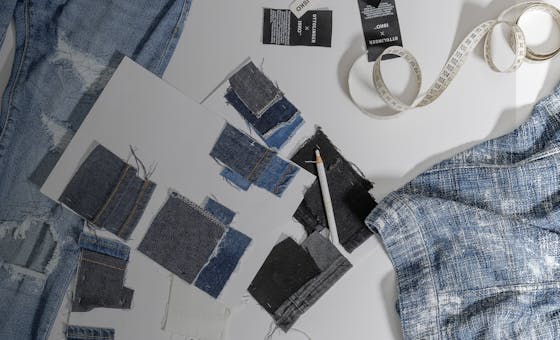PLEASED BUT NOT YET SATISFIED
With the recent release of our 2022 Sustainability Impact Report, we’ve spoken with Ebru Özküçük, Head of Sustainability at ISKO Denim. We’ve asked her to reflect on the past year and share her thoughts about ISKO’s future goals.
How has COVID-19 and the world economic circumstances impacted us achieving our sustainability goals?
Covid was, of course, difficult from a social point of view. In terms of business, our production decreased, but this lent more time for planning and evaluating the production process itself. It created time for reflection. Now, with the current difficult economic circumstances — inflation and the war in Ukraine — it will be more difficult to invest in sustainability. People tend to focus more on prices and less on sustainability in times like these. Merging our sustainability goals with our business model is key for overcoming this hurdle.
Why are SDGs important?
The UN has created this set of Sustainable Development Goals — they are internationally well-known standards. This is important because it motivates companies around the world to get on the same page, to get everyone working together towards common goals. With a common framework, all contributors can speak the same language and pursue a common set of goals. It helps to give direction. In our case, for example, we can reference SDG 7, which addresses affordable and clean energy. By communicating our targets and our achievements, our customers can be confident that their suppliers are using clean energy — and they can communicate this to their customers.
Can you speak about the progress of the circularity hub?
The development of the circularity hub is going well. We are focusing on garment-to-garment recycling. Of course, we want to speed up, and we are learning more everyday as we explore new technologies — from mechanical to chemical recycling.
For our brands and partners, we are working to offer sustainable solutions under one roof, and this effort and potential is increasing. We are ready to scale-up. We’ve invested in the technology, and we’re seeing that there is interest from the market to make these collaborations happen.
Why is this important now?
There are new EU legislations that will begin enforcing change. For example, starting in 2025, municipalities will be required to create a separate collection system for textile waste from households. This means that we can expect increasingly large volumes of textiles coming back into the manufacturing stream. We need to have systems in place to manage and process these materials.
What do you expect for the next report?
In the coming year, we hope to place more attention on biodiversity. Until now, we have made steps to prevent negative impact. In the years to come, we want to take more proactive measures to restore biodiversity. Increasing attention will be put on this in the COP 27 in Egypt in November, and future innovations will be directly linked to this.
Are we on target for the new year?
We have reached many of our targets ahead of schedule — nine years early in some cases. Based on these trends, we expect to achieve more of our goals sooner. We have already managed to produce 85% of our products with recycled materials, while increasing their durability. We met a 2030 target in 2021, reducing our carbon output by 50% per tonne.
And we installed 3.5 MW solar array, 25% of our total future target. We’re still on schedule to meet our many other sustainability goals and we hope to go above and beyond those as well.
THANK YOU
Thanks for signing up to the ISKO™ newsletter. To start receiving the latest news and stories, please check your inbox for a confirmation email.

